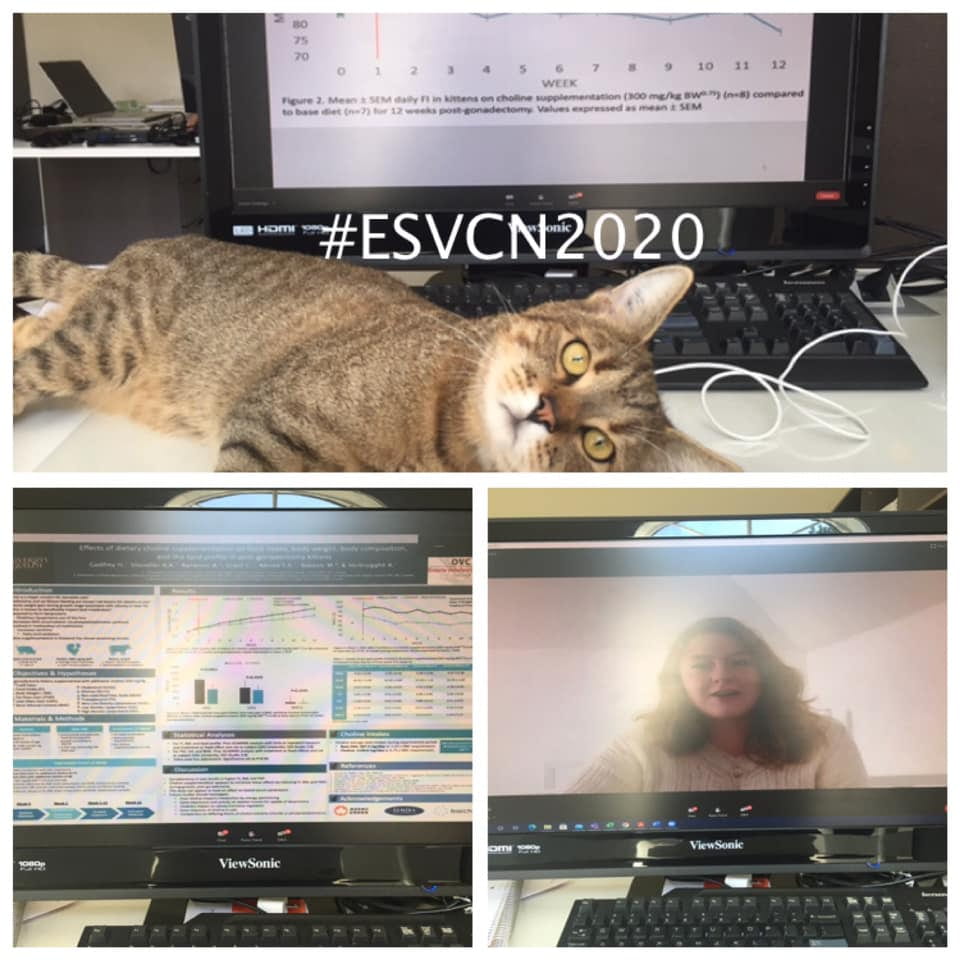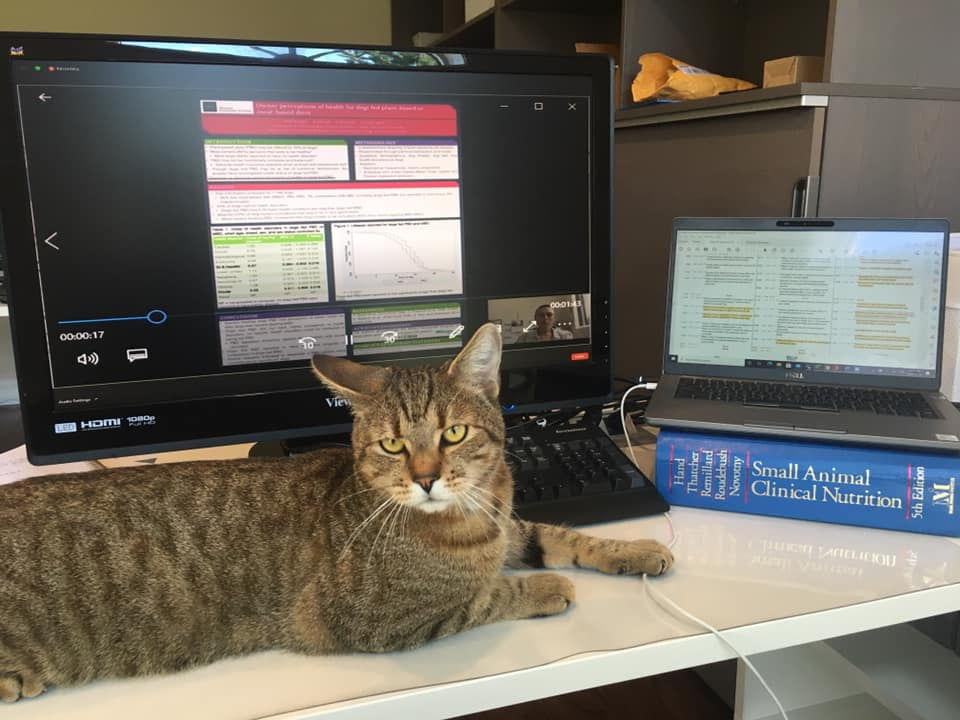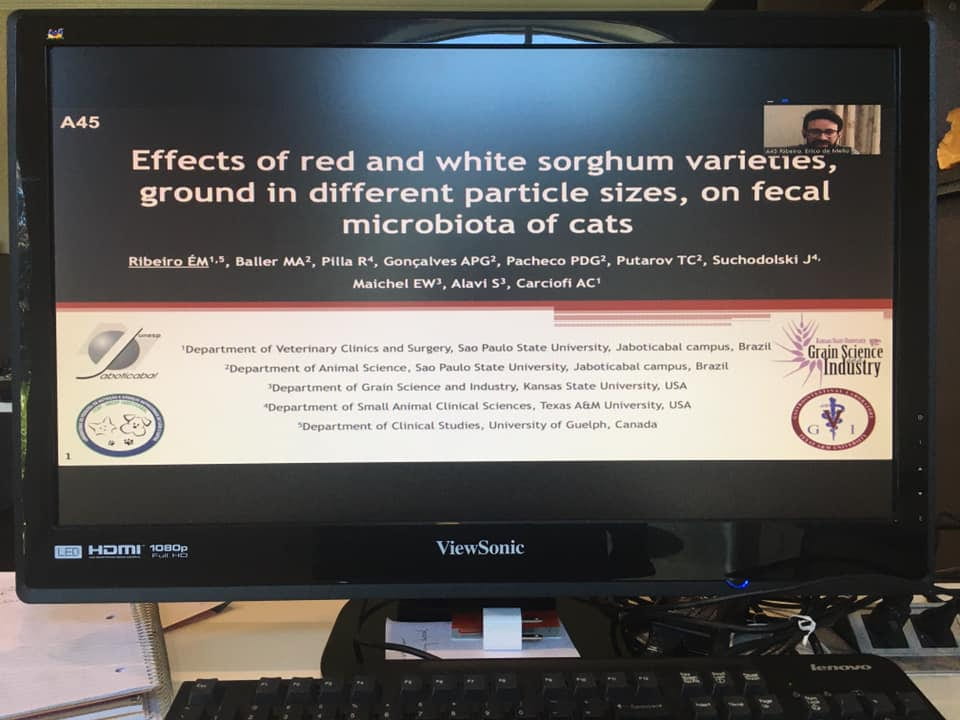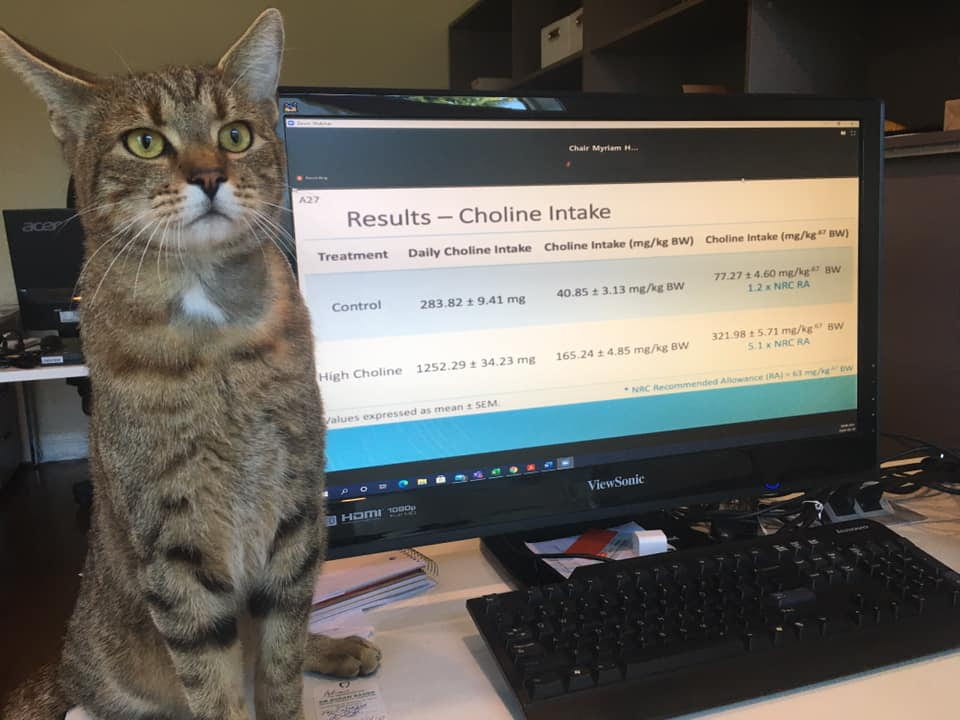Last week was the European Society of Veterinary and Comparative Nutrition (ESVCN) Congress, presented remotely to maintain the safe delivery of data to the world of animal veterinary and comparative nutrition. Due to the need for the congress to proceed virtually, our team was unable to socialize and network with colleagues from around the world. The virtual format was well organized, featuring session times allowing for a breadth of international attendance.

Previous research has explored the prevalence of plant based diets and the nutrient composition of these diets, which demonstrated a lack of essential nutrients. There is however a lack of published data demonstrating adverse health effects relating to dogs eating these diets. As part of the Toxins & Minerals Session, Dr. Sarah Dodd (PhD student and ECVCN resident) presented her abstract entitled, “Owner perceptions of health for dogs fed plant-based or meat-based diet”. This data was collected via a survey of pet owners feeding a variety of diets who were asked about their dog’s health. Although is was hypothesized that dogs eating a plant-based diet would demonstrate symptoms of nutritional deficiencies or other adverse health effects, this research failed to demonstrate this correlation. To the contrary, owners feeding a plant based diet to their dog actually reported better health than those feeding a meat based diet.

During the Fibre Session, our newest DVSc student and ECVCN resident, Dr. Erico M Ribeiro presented his PhD research conducted at the Sao Paulo State University in Brazil. His research investigated the effects of red and white sorghum varieties, ground in different particle sizes, on fecal microbiota of cats. This research compared the microbiota of more traditional carbohydrate sources, rice and corn, to red and white sorghum. Dr. Ribeiro concluded that differing particle sizes had a significant effect, as well as the carbohydrate source. Both varieties of sorghum resulted in an increase in beneficial bacteria in the feces, while corn demonstrated an increase in Enterobacteria in the feces.

As part of the Protein Session, Hannah Godfrey (MSc student) presented her exciting research exploring the effects of dietary choline supplementation on recently neutered cats. Hannah’s work explored if dietary choline, which is known to demonstrate liphotrophic effects (increase fat-burning) in other species such as cows, would have similar results in cats. This was paired with neutering, a beneficial procedure known to decrease metabolism and increase the likelihood of obesity. Using a kitten food as a control, the study group of kittens was fed the control diet with added dietary choline. The kittens were then assessed utilizing subjective and objective diagnostics to determine the results, which were striking. Kittens fed dietary chloine had lower voluntary food intake, body weight and body condition score compared to their counterparts who experienced higher intake, BCS and BW, with no change in bone mineral density or lean muscle.

To showcase our team’s work in safely combating the pet obesity epidemic, Alexandra Rankovic (PhD student) shared her research further investigating how choline could help cats lose weigh in a healthy manner. Cats are predisposed to a condition referred to as hepatic lipidosis, also known as “Fatty Liver Disease”. This develops when cats rapidly metabolize their body stores of fat for energy, often in a state of severe caloric restriction or starvation. As a result, a clinician may be apprehensive to place obese cat on a strict weight loss plan, often resulting in an overestimation of caloric intake as directed in weight loss plans. This work investigated the hypothesis that choline would help mobilize fat accumulation from the liver, reducing the likelihood of an occurrence of fatty liver disease. This is precisely what was demonstrated when choline was fed to one of two obese groups of cats both eating the same diet. Blood was collected and analyzed, demonstrating an increase in circulating fat, suggesting that fat accumulation in the liver was reduced.
Congratulations to the OVC Nutrition Team for supporting so many talented students in their work!
Thank you to the organization committee of the ESVCN Congress for inviting our team to share their work!


